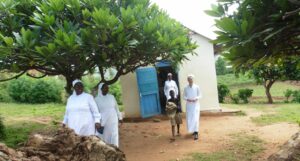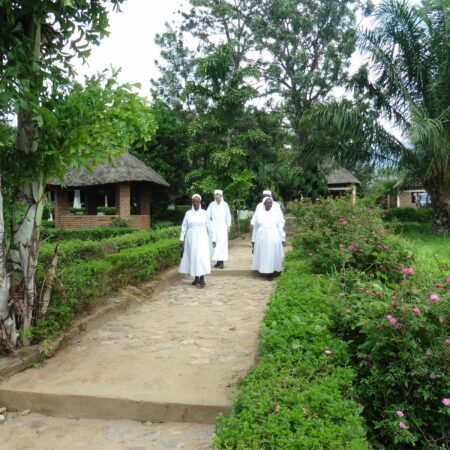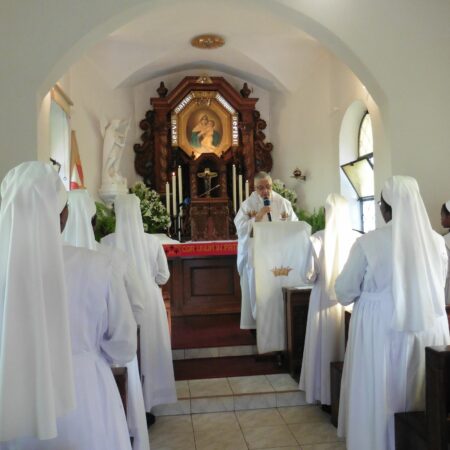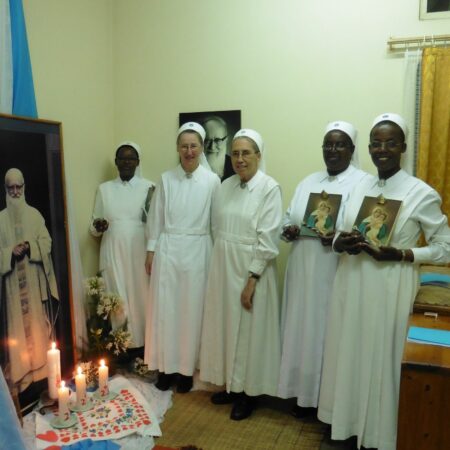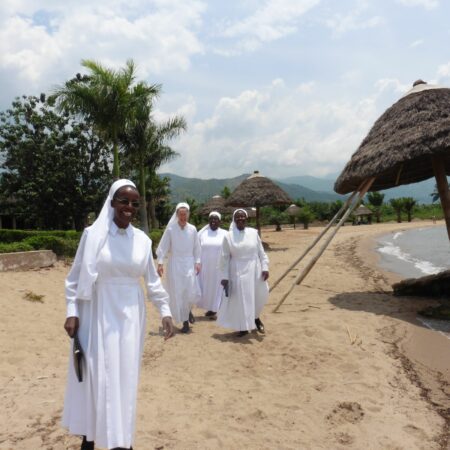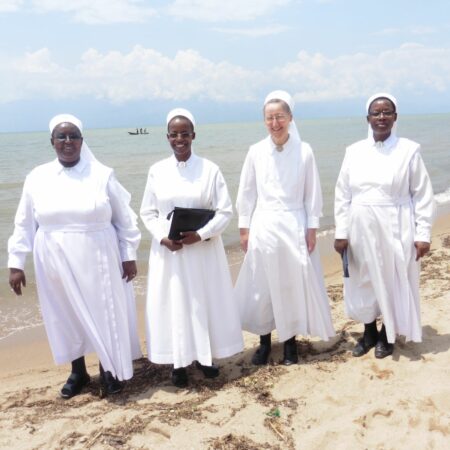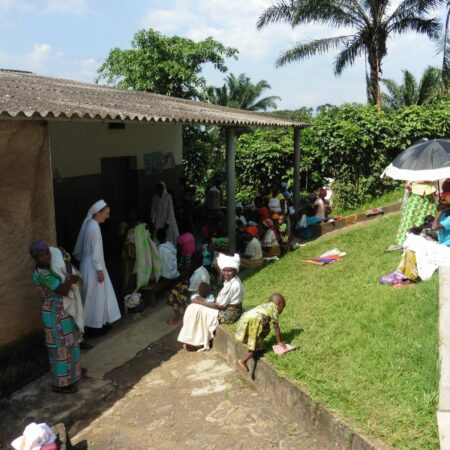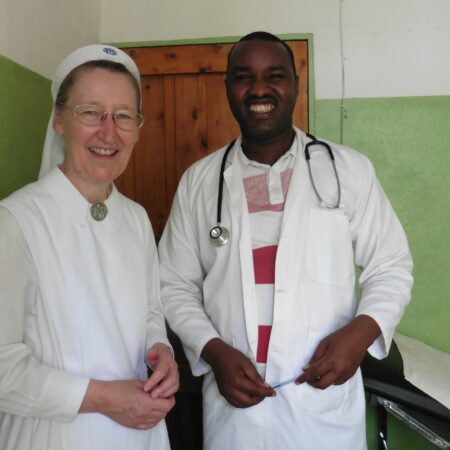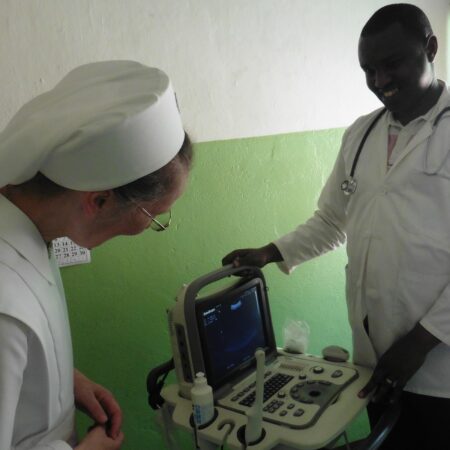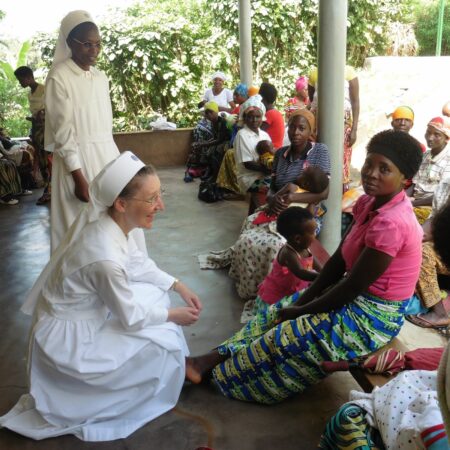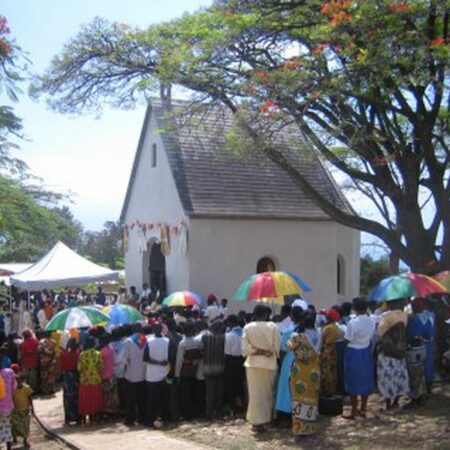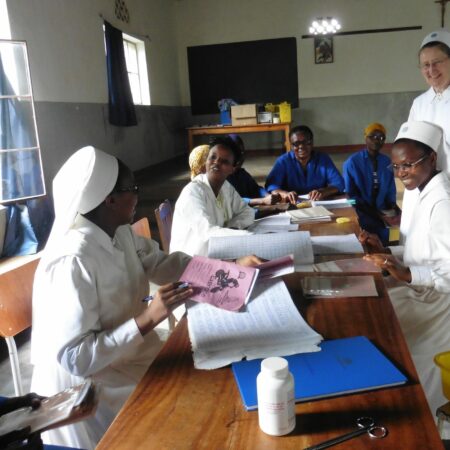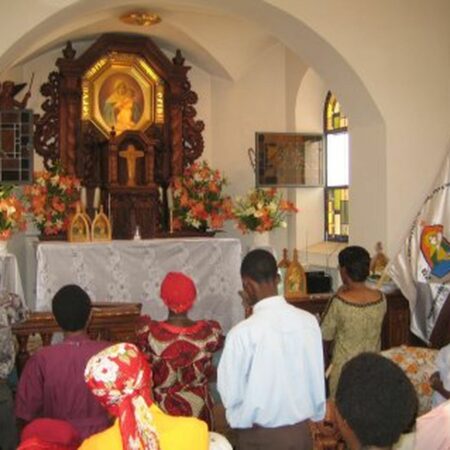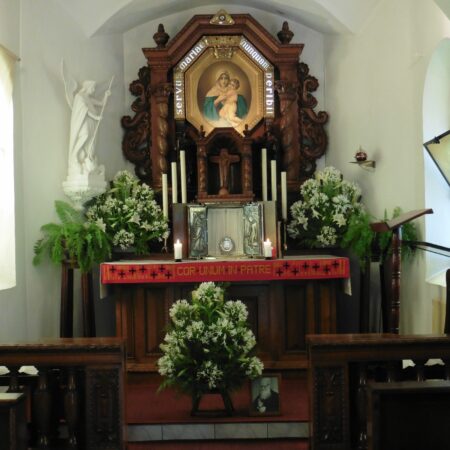A Visit to our Sisters in Burundi, Central Africa
I never thought I would fly to Africa, but this year, for the sixth time, I did so—each time for about three weeks. Twice I participated in the investiture of sisters from the country, and visited the places where our sisters work.
Promoting peace from within
In the city of Bujumbura, Burundi there is a school for sewing and the Queen of Peace Center–important social projects that strengthen and promote peace from within. Almost every weekend, the sisters travel from Bujumbura through the country of Burundi to build up the Schoenstatt Movement. I visited the hospital, maternity ward, laboratory, dispensary, and school in Mutumba. Mutumba is beautifully situated with lovely views to the surrounding hills and the Sea of Tanganika. During the rainy season, there is great diversity of vegetation everywhere, especially shrubs with very large, beautiful flowers. In Muyinga, among other tasks, the sisters work on behalf of the bishop for the “Natural Conception Regime” (NER) and for the visits of the Pilgrim MTA to homes.
I have traveled to Burundi four times to visit our four houses, to have conversations with the sisters, and especially to provide times of internal training and renewal to sisters five years after they make their commitment forever, to sisters for their silver jubilee, to sisters who work in the Schoenstatt Movement, and so on.
Joy of life and serenity
It is always a beautiful experience to be in the Schoenstatt Shrine in Burundi, Africa. One feels at home immediately! It’s impressive to see how many people visit the Mother of God from morning to night in the shrine. The people of Burundi truly have a deeply religious soul. I am also amazed by the abundant Schoenstatt life throughout the country. The fact that there are several hundred Schoenstatt Girls Youth groups is nothing extraordinary! It is especially noteworthy to witness the joy of life the people possess and how they relax. They can dance, sing, clap, and play drums without tiring—[they can] simply BE. This is surprising especially when one notices how many people are very poor and have almost nothing. The conditions can hardly be imagined. Often the people live from hand to mouth, eating one meal a day—simply living one day at a time.
Everything is much simpler
Somehow–surprisingly quickly—one becomes accustomed to a much simpler way of life; that the song books are quickly stained, that the floors are of cement, that one washes ones clothing with soap at the washing trough, that one washes one hair with cold water and a glass, that the wash basins have red spots from the water which does not come out clear or doesn’t come at all, that the only lightbulb in the room suddenly goes out, that lizards scurry in the choir of the chapels, that streets have an incredible amount of holes, and so on.
But then, the joy that there about 60 Schoenstatt Sisters of Mary in Burundi who are from Burundi trumps everything else. It is a beautiful country, and we people from Europe can really be complemented by the people there!
